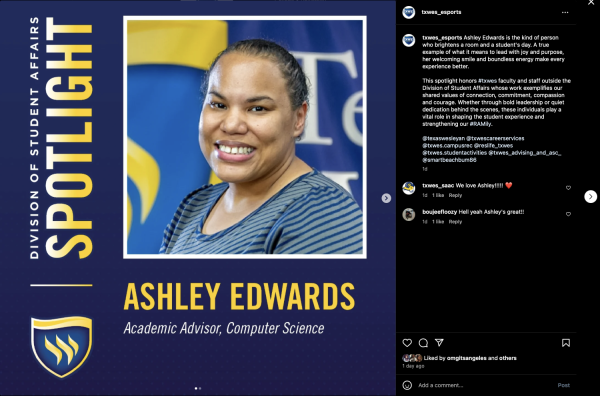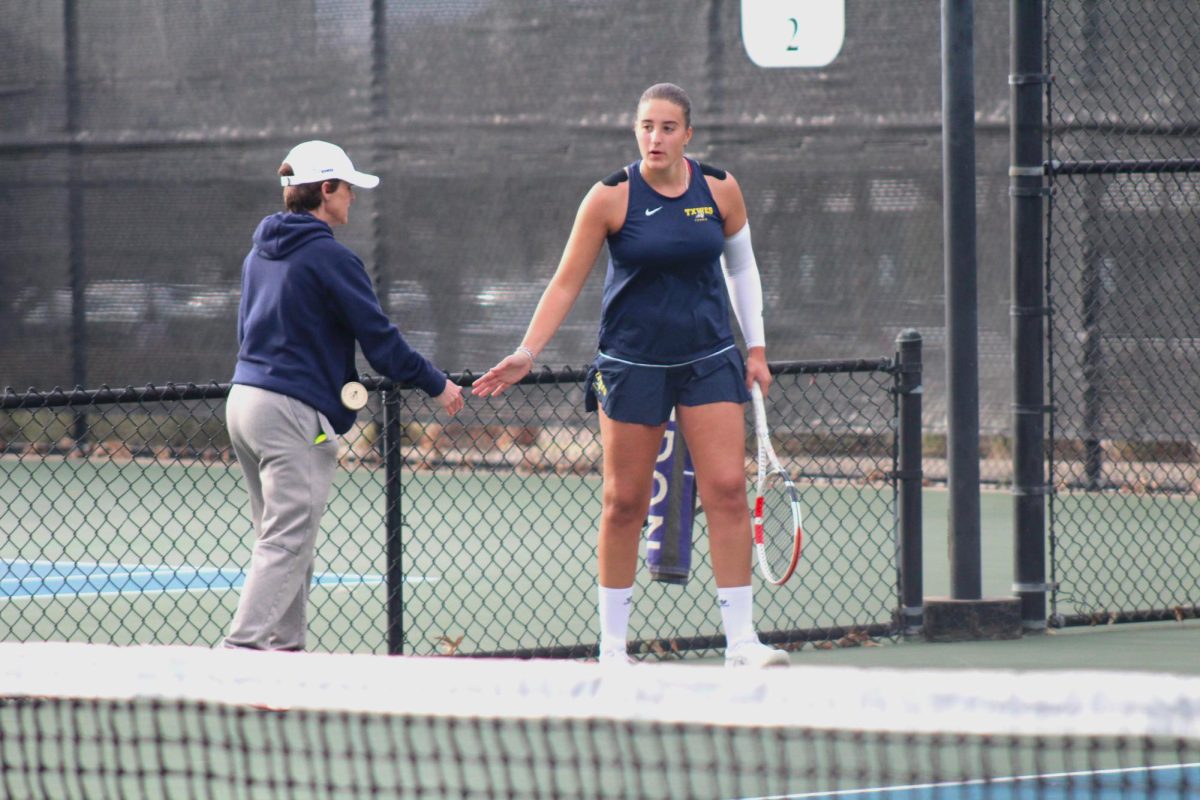At Texas Wesleyan University, esports is more than just gaming—it’s storytelling. Behind the viral TikTok, engaging Instagram Reels, and real-time Twitter updates stands a dynamic team committed to capturing the heart and soul of collegiate esports through impactful content.
Daryl Culpepper, social media manager for Texas Wesleyan Esports, always saw storytelling as his calling.
“Esports gave me a unique lens—capturing emotions, the grind, and personalities behind the scenes,” Culpepper said. “My goal was always to elevate my teammates’ voices and help build something meaningful.”
Culpepper described how his role evolved beyond merely posting clips, growing into a sophisticated blend of strategic planning and authentic engagement. A recent TikTok featuring raw player reactions after a clutch match significantly exceeded engagement expectations, becoming a testament to the genuine storytelling approach Culpepper champions.
“Platforms like TikTok and Instagram Reels reward quick, authentic, entertaining content,” he said. “Twitter complements that by providing real-time updates and direct community interactions.”
Meanwhile, Benjamin Domenzain, community manager and new student mentor lead, integrates his dual roles seamlessly.
“Being a mentor aligns perfectly with content creation because it allows me to genuinely connect new students to our esports family,” he said. “We emphasize connection—it’s what differentiates us.”
One notable content piece Domenzain highlighted was a recent media day where students showcased their personalized esports jerseys.

“It visually reinforced our identity as more than just a team; we’re a community,” Domenzain said.
Both Domenzain and Culpepper recognize the significant role analytics play in content strategy, using engagement rates and watch times to continually refine their approaches. Culpepper recalls facing low engagement during quieter seasons, creatively pivoting toward meme-driven and short-interview content that revitalized follower interaction.
“Analytics are like a compass guiding our content creation journey,” Culpepper said. “When engagement dipped during slower periods, we didn’t panic—we pivoted. Shifting our focus toward meme-driven content and short, playful interviews allowed us to reconnect with our audience authentically. It reinforced that adaptability, informed by analytics, is crucial to keeping our community engaged and energized.”
Eugene Frier, director of Esports at Texas Wesleyan, expressed pride in the department’s innovative approach.
“Our goal isn’t simply promoting esports,” Frier said. “It’s about creating content people genuinely want to watch, whether it’s gaming-related, pop culture-driven, or tapping into fun TikTok trends.”
The esports minor introduced at Texas Wesleyan in collaboration with the Mass Communication Department exemplifies the institution’s commitment to academic integration. Courses like “Content Creation in Esports & Gaming” have provided students with structured ways to develop professional skills.
“Our mission extends beyond esports itself,” Frier said. “We’re preparing students with marketable skills, regardless of the industry they enter.”
Looking ahead, the esports content team plans exciting expansions.
“We’re exploring documentary-style videos, deeper dives into player routines, and even player takeovers on social media,” Culpepper said.
Frier added that discussions are underway about launching a dedicated streaming team, offering additional content streams and practical experience for students.
“Launching a dedicated streaming team is about expanding our storytelling capabilities and giving students hands-on experience in content production,” Frier said. “This initiative isn’t just about increasing the quantity of content; it’s about creating meaningful, engaging opportunities for our students to build professional skills, showcase their creativity, and deepen connections within our esports community.”
For Domenzain, the biggest personal lesson has been patience in the creative process.
“Sometimes a 30-second TikTok video can take hours to perfect,” he said. “But learning to embrace imperfections has been essential.”
Above all, the esports department’s content creation isn’t merely about visibility—it’s about community building, professional growth, and fostering a vibrant campus culture. Domenzain encourages aspiring content creators to believe in themselves and take chances, calling confidence the first step toward success.
“Take a leap of faith. Believing in yourself is the first step toward creating something great,” Domenzain said.
With a strategic vision and a creative heart, Texas Wesleyan’s esports department isn’t just playing the game—they’re changing how collegiate esports connects, communicates and thrives.









![Pippin, played by Hunter Heart, leads a musical number in the second act of the musical. [Photo courtesy Kris Ikejiri]](https://therambler.org/wp-content/uploads/2025/04/Pippin-Review-1200x800.jpg)
![Harriet and Warren, played by Trinity Chenault and Trent Cole, embrace in a hug [Photo courtesy Lauren Hunt]](https://therambler.org/wp-content/uploads/2025/02/lettersfromthelibrary_01-1200x800.jpg)
![Samantha Barragan celebrates following victory in a bout. [Photo courtesy Tu Pha]](https://therambler.org/wp-content/uploads/2025/05/20250504_164435000_iOS-834x1200.jpg)





![Hunter Heart (center), the play's lead, rehearses a scene alongside other student actors. [Photo courtesy Jacob Sanchez]](https://therambler.org/wp-content/uploads/2025/04/thumbnail_IMG_8412-1200x816.jpg)
![Student actors rehearse for Pippin, Theatre Wesleyan's upcoming musical. [Photo courtesy Jacob Rivera-Sanchez]](https://therambler.org/wp-content/uploads/2025/04/Pippin-Preview-1200x739.jpg)
![[Photo courtesy Brooklyn Rowe]](https://therambler.org/wp-content/uploads/2025/05/CMYK_Shaiza_4227-1080x1200.jpg)

![Lady Rams softball wraps up weekend against Nelson Lions with a victory [6 – 1]](https://therambler.org/wp-content/uploads/2025/04/Screenshot-2025-04-04-100924-1200x647.png)
















![Rambler staff pose following the Texas Intercollegiate Press Association Convention award breakfast. [Photo courtesy Dr. Jenny Dean]](https://therambler.org/wp-content/uploads/2025/04/IMG_2646-1200x900.jpeg)
![The Texas Wesleyan University women's golf team walks the course. [Photo courtesy of Corrina Griffin]](https://therambler.org/wp-content/uploads/2025/04/rounds-902x1200.jpg)


